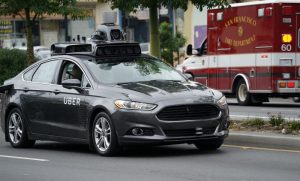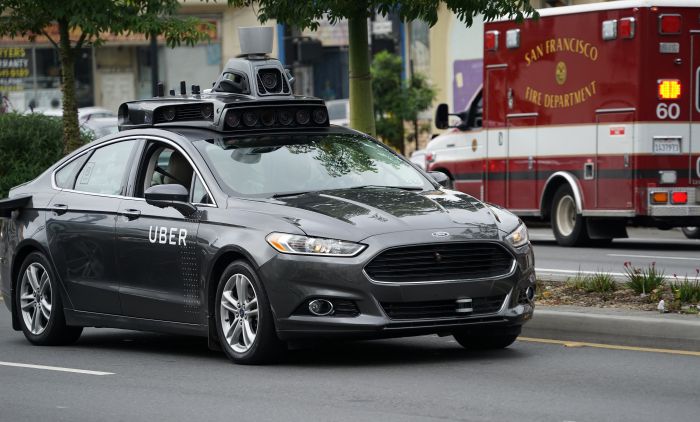This week in political economy.

- The “techlash” against digital platforms went into hyperdrive this week, as Facebook became increasingly embroiled in the Cambridge Analytica scandal and self-driving technology marked its first fatality with the killing of a pedestrian by one of Uber’s automated vehicles
- As Facebook faces intense scrutiny following the revelations that Cambridge Analytica harvested the personal data of 50 million users to help the Trump campaign, Facebook CEO and cofounder Mark Zuckerberg (who finally addressed the revelations on Wednesday after being widely rebuked for his silence) and COO Sheryl Sandberg both expressed an uncharacteristic openness to the idea of regulation, and Apple CEO Tim Cook has joined the fray as well. In The Atlantic, Franklin Foer argues that the Cambridge Analytica scandal shows “it’s time to regulate the Internet.”
- All eyes are now on what the Federal Trade Commission (which reached a 2011 agreement with Facebook to settle charges related to privacy concerns) will now do. In The Guardian, Barry Lynn and Matt Stoller of the Open Markets Institute call on the FTC to restructure Facebook, outlining nine possible steps to address its power, among them imposing strict privacy rules on the company, spinning off Facebook’s ad network, and reversing the regulatory approvals given to Facebook’s purchases of WhatsApp and Instagram.
- In The Intercept, David Dayen determines that the FTC is “powerless to regulate Facebook right now.” Dayen pins much of the blame on senate minority leader Chuck Schumer (D-NY), who, he writes, “is holding up what would be an easy confirmation for nominees to run the Federal Trade Commission.” The FTC is currently operating with only two commissioners, instead of five. “There’s essentially nobody running the agency at the moment, as the commissioners are lame ducks without the power to dictate policy to career staff,” he writes.
- As the revelations over Cambridge Analytica’s shady conduct continue to pile up, more attention is being given to Facebook’s overall business model, or as Zeynep Tufekci calls it in the New York Times, “Facebook’s surveillance machine.” A former Facebook executive tells The Guardian that “numerous companies” deployed techniques similar to Cambridge Analytica’s to harvest the personal data of potentially hundreds of millions of users. In The Atlantic, a smart piece by Ian Bogost points to the overall Facebook app ecosystem, beyond data thieves and brokers, where “every Facebook app—even the dumb, innocent ones—collected users’ personal data without even trying.”
- This Financial Times editorial presents four questions Facebook needs to answer.
- Axios’s Kim Hart draws the new lines that divide the tech industry: social media vs. everyone else.
- In The Drive, Alex Roy argues that “Uber is culpable in the death of Elaine Herzberg,” the pedestrian that was killed when an Uber self-driving car hit her last week. The “disgraceful” dashcam video of the accident, he writes, “proves Uber is the Theranos of self-driving.” In the New York Times, Daisuke Wakabayashi examines the technical difficulties Uber had with its self-driving cars prior to the Arizona crash.
- From ReCode: Americans are still paying for cable because it’s bundled with their Internet.
- Trump hits China with $60 billion in tariffs. China hits back with its own tariffs on US imports. From MarketWatch: “With China tariffs, Trump barks but doesn’t bite.”
- From The Intercept’s Lee Fang and Nick Surgey: “Chinese e-commerce giant Alibaba has joined the American Legislative Exchange Council [ALEC], a private group set up for corporations and other interest groups to ghostwrite legislation sponsored by legislators in state capitols around the country.”
Chatter from the Ivory Tower
- On Monday, another Chetty-bomb: Chetty, Hendren, Jones, and Porter tracked intergenerational social mobility for men and women of different races and found sharp gaps between black and white men conditional on parent income, even for boys who grow up in the same neighborhood. The New York Times coverage of the study, adorned with gorgeous animated graphics, exploded econ Twitter this week. Many commenters coincided with Chetty et al. in highlighting the continued disadvantages faced by black boys particularly, while Noah Smith and others noted that the outliers across demographic groups overall were white men, whose socioeconomic status conditional on parent income remained consistently stable ahead of that of black women and men as well as white women. Others noted the different reaction to the story between white and POC scholars.
Stigler Center Goings-on
- On April 19 and 20, 2018, the Stigler Center will dedicate its annual Antitrust and Competition conference to the topic of “Digital Platforms and Concentration.” The invitation-only conference will bring together economists, law scholars, intellectuals, venture capitalists, and business people for two days of discussion, with keynote speakers Makan Delrahim, assistant attorney general of the Department of Justice’s Antitrust Division, Alvin Roth, the 2012 Nobel laureate in economics, and Jean Tirole, the 2014 Nobel laureate in economics. More details here.
- On the latest episode of the Capitalisn’t podcast, Luigi Zingales and Kate Waldock examine the effect of monopsonies in the labor market among concentrated industries like Big Tech and answer the question: Are companies colluding against workers and driving down wages?
Disclaimer: The ProMarket blog is dedicated to discussing how competition tends to be subverted by special interests. The posts represent the opinions of their writers, not necessarily those of the University of Chicago, the Booth School of Business, or its faculty. For more information, please visit ProMarket Blog Policy.






